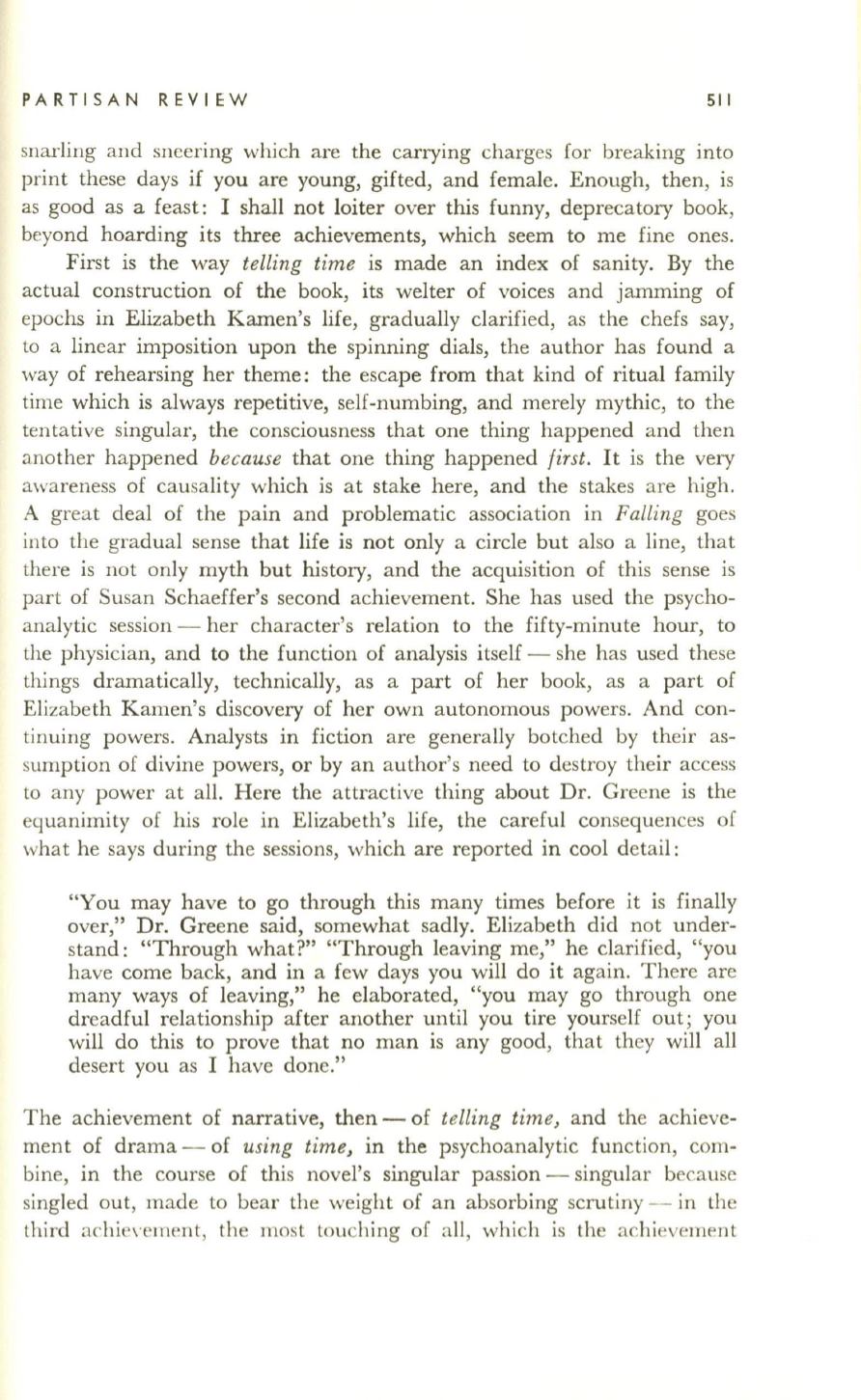
PARTISAN REVIEW
511
snarling and sneering which are the carrying charges for breaking into
print these days if you are young, gifted, and female. Enough, then, is
as good as a feast: I shall not loiter over this funny, deprecatory book,
beyond hoarding its three achievements, which seem to me fine ones.
First is the way
telling time
is made an index of sanity. By the
actual construction of the book, its welter of voices and jamming of
epochs in Elizabeth Kamen's life, gradually clarified, as the chefs say,
to a linear imposition upon the spinning dials, the author has found a
way of rehearsing her theme: the escape from that kind of ritual family
time which is always repetitive, self-numbing, and merely mythic, to the
tentative singular, the consciousness that one thing happened and then
another happened
because
that one thing happened
first.
It
is the very
awareness of causality which is at stake here, and the stakes are high.
A great deal of the pain and problematic association in
Falling
goes
into the gradual sense that life is not only a circle but also a line, that
there is not only myth but history, and the acquisition of this sense is
part of Susan Schaeffer's second achievement. She has used the psycho–
analytic session - her character's relation to the fifty-minute hour, to
the physician, and to the function of analysis itself - she has used these
things dramatically, technically, as a part of her book, as a part of
Elizabeth Kamen's discovery of her own autonomous powers. And con–
tinuing powers. Analysts in fiction are generally botched by their as–
sumption of divine powers, or by an author's need to destroy their access
to any power at all. Here the attractive thing about Dr. Greene is the
equanimity of his role in Elizabeth's life, the careful consequences of
what he says during the sessions, which are reported in cool detail:
"You may have to go through this many times before it is finally
over," Dr. Greene said, somewhat sadly. Elizabeth did not under–
stand: "Through what?" "Through leaving me," he clarified, "you
have come back, and in a few days you will do it again. There are
many ways of leaving," he elaborated, "you may go through one
dreadful relationship after another until you tire yourself out; you
will do this to prove that no man is any good, that they will all
desert you as I have done."
The achievement of narrative, then - of
telling time,
and the achieve–
ment of drama - of
using time,
in the psychoanalytic function, com–
bine, in the course of this novel's singular passion - singular because
singled out, made to bear the weight of an absorbing scrutiny - in the
third achie\"ement, the most touching of all, whi ch is the achi evement


